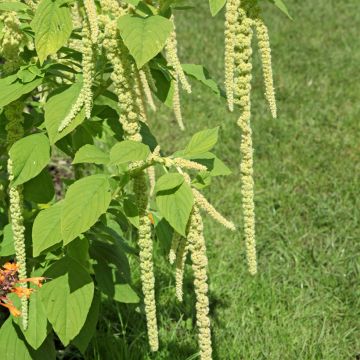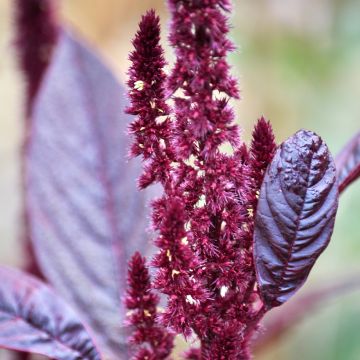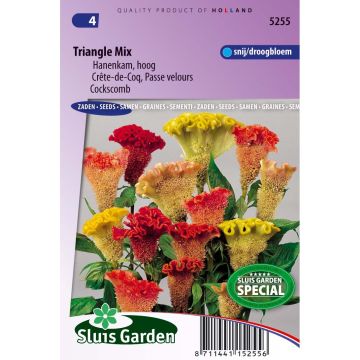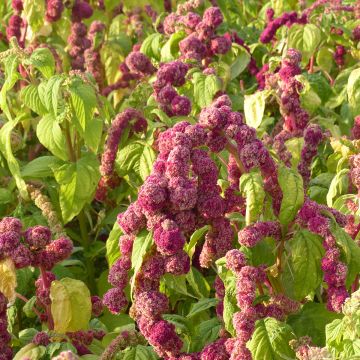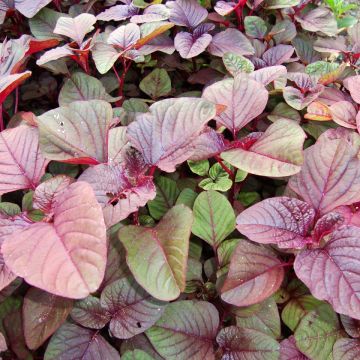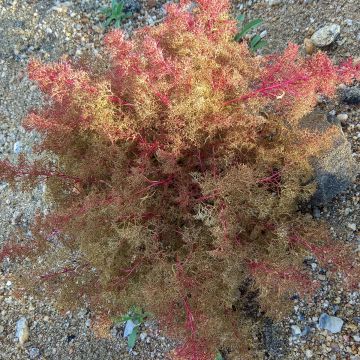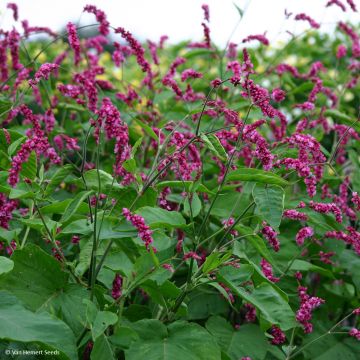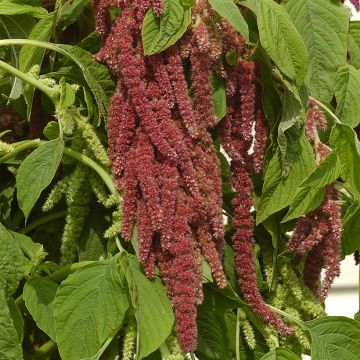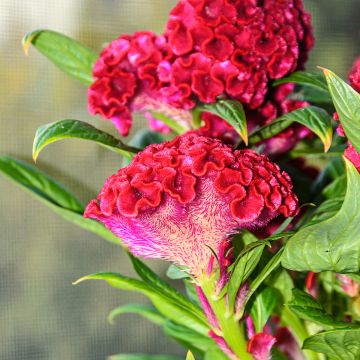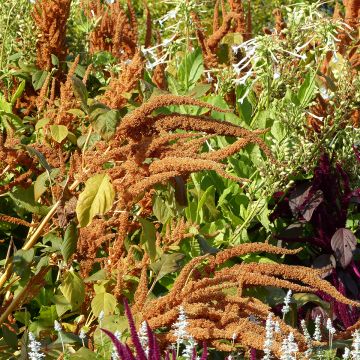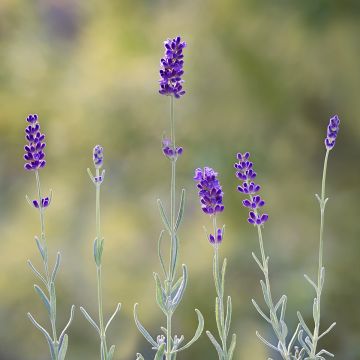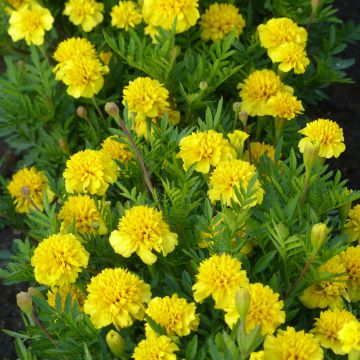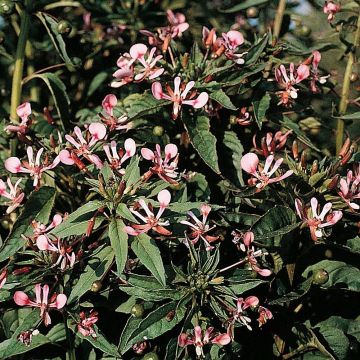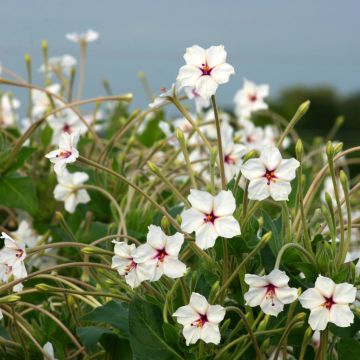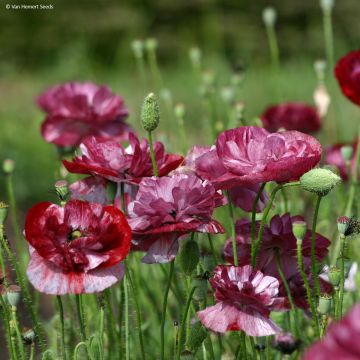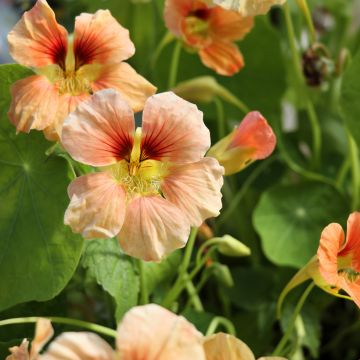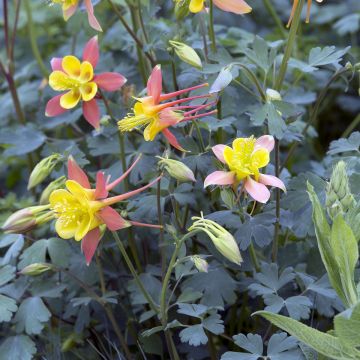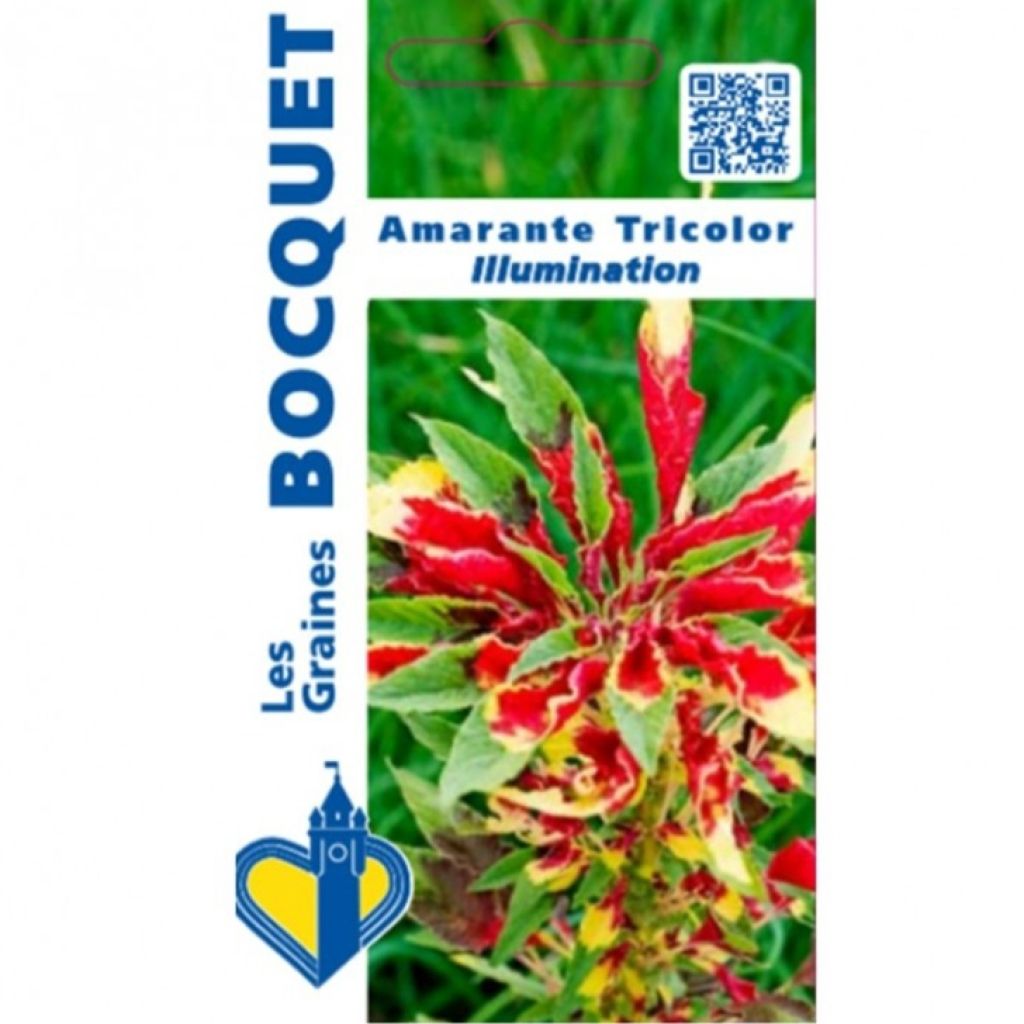

Graines d'Amarante tricolore Illumination
Amaranthus tricolor Illumination - Amaranth
Amaranthus tricolor Illumination
Amaranth
Special offer!
Receive a €20 voucher for any order over €90 (excluding delivery costs, credit notes, and plastic-free options)!
1- Add your favorite plants to your cart.
2- Once you have reached €90, confirm your order (you can even choose the delivery date!).
3- As soon as your order is shipped, you will receive an email containing your voucher code, valid for 3 months (90 days).
Your voucher is unique and can only be used once, for any order with a minimum value of €20, excluding delivery costs.
Can be combined with other current offers, non-divisible and non-refundable.
Why not try an alternative variety in stock?
View all →This plant carries a 6 months recovery warranty
More information
We guarantee the quality of our plants for a full growing cycle, and will replace at our expense any plant that fails to recover under normal climatic and planting conditions.
Would this plant suit my garden?
Set up your Plantfit profile →
Description
This Amaranthus tricolor Illumination may be the most beautiful selection from a beautiful annual plant called amaranth. It is grown for its remarkably colourful and variegated young leaves. Its juvenile and undulate leaves combine gold, orange, copper, and red in large splashes that persist well into autumn. This plant is magnificent in flower beds, pots, or bouquets. It appreciates the sun and well-drained soil rich in nitrogen.
Also known as Amaranth tricolor, this upright annual belongs to the amaranth family. It is native to tropical areas of Southeast Asia (China, Japan, India, Java). In a year, it forms one or several stems that are 60 to 80 cm (24 to 32in) tall, occupying about 40 cm (16in) of ground space. 'Illumination' is a cultivar with richly coloured foliage. The large evergreen leaves are elongated and tapered, wavy-edged, and strongly veined. They are arranged in a circle around the thick, sturdy stems. When they are young, at the tips of the stems, they are flamboyant, variegated, and their beautiful colours persist until the frosts. Then they turn green. The flowering, quite discreet in this variety, occurs in late summer and autumn. The tiny red flowers are gathered in modest panicles. Seeds can be collected at the end of the season to be sown again the following year.
Amaranthus tricolor are wonderful foliage plants that have their place in flower beds. Their exotic appearance also suits large pots on the patio. Plant them in groups of 3 or 5, associate them with other lower or creeping plants (catmints, silver baskets) to highlight the height of the plants. They are also vegetable plants that can be sown in the vegetable garden. They can be eaten raw in salads or cooked like spinach.
Report an error about the product description
Flowering
Foliage
Plant habit
Botanical data
Amaranthus
tricolor
Illumination
Amaranthaceae
Amaranth
Amaranthus mangostanus
Cultivar or hybrid
Other Amaranthus seeds
View all →Planting and care
Sow the seeds of Amaranth tricolor in early spring at 21-24°C in good seed compost. Bury the seeds 2mm (0.1in) deep and keep the soil moist but not waterlogged. It can be beneficial to enclose the sowing in a polythene bag. Germination usually takes 10 to 14 days. When the plants are large enough to handle, transplant them into pots and acclimatise them to cooler conditions. Then gradually acclimatise them to outdoor conditions for 10 to 15 days before planting them when the frost has passed, spacing them 30-40cm (12-16in) apart in a sunny location, in good, deep garden soil. These plants have a high water requirement.
Tricolor amaranths have a taproot system. It is best to avoid moving them when they are too large.
Sowing period
Intended location
This item has not been reviewed yet - be the first to leave a review about it.
Similar products
Haven't found what you were looking for?
Hardiness is the lowest winter temperature a plant can endure without suffering serious damage or even dying. However, hardiness is affected by location (a sheltered area, such as a patio), protection (winter cover) and soil type (hardiness is improved by well-drained soil).

Photo Sharing Terms & Conditions
In order to encourage gardeners to interact and share their experiences, Promesse de fleurs offers various media enabling content to be uploaded onto its Site - in particular via the ‘Photo sharing’ module.
The User agrees to refrain from:
- Posting any content that is illegal, prejudicial, insulting, racist, inciteful to hatred, revisionist, contrary to public decency, that infringes on privacy or on the privacy rights of third parties, in particular the publicity rights of persons and goods, intellectual property rights, or the right to privacy.
- Submitting content on behalf of a third party;
- Impersonate the identity of a third party and/or publish any personal information about a third party;
In general, the User undertakes to refrain from any unethical behaviour.
All Content (in particular text, comments, files, images, photos, videos, creative works, etc.), which may be subject to property or intellectual property rights, image or other private rights, shall remain the property of the User, subject to the limited rights granted by the terms of the licence granted by Promesse de fleurs as stated below. Users are at liberty to publish or not to publish such Content on the Site, notably via the ‘Photo Sharing’ facility, and accept that this Content shall be made public and freely accessible, notably on the Internet.
Users further acknowledge, undertake to have ,and guarantee that they hold all necessary rights and permissions to publish such material on the Site, in particular with regard to the legislation in force pertaining to any privacy, property, intellectual property, image, or contractual rights, or rights of any other nature. By publishing such Content on the Site, Users acknowledge accepting full liability as publishers of the Content within the meaning of the law, and grant Promesse de fleurs, free of charge, an inclusive, worldwide licence for the said Content for the entire duration of its publication, including all reproduction, representation, up/downloading, displaying, performing, transmission, and storage rights.
Users also grant permission for their name to be linked to the Content and accept that this link may not always be made available.
By engaging in posting material, Users consent to their Content becoming automatically accessible on the Internet, in particular on other sites and/or blogs and/or web pages of the Promesse de fleurs site, including in particular social pages and the Promesse de fleurs catalogue.
Users may secure the removal of entrusted content free of charge by issuing a simple request via our contact form.
The flowering period indicated on our website applies to countries and regions located in USDA zone 8 (France, the United Kingdom, Ireland, the Netherlands, etc.)
It will vary according to where you live:
- In zones 9 to 10 (Italy, Spain, Greece, etc.), flowering will occur about 2 to 4 weeks earlier.
- In zones 6 to 7 (Germany, Poland, Slovenia, and lower mountainous regions), flowering will be delayed by 2 to 3 weeks.
- In zone 5 (Central Europe, Scandinavia), blooming will be delayed by 3 to 5 weeks.
In temperate climates, pruning of spring-flowering shrubs (forsythia, spireas, etc.) should be done just after flowering.
Pruning of summer-flowering shrubs (Indian Lilac, Perovskia, etc.) can be done in winter or spring.
In cold regions as well as with frost-sensitive plants, avoid pruning too early when severe frosts may still occur.
The planting period indicated on our website applies to countries and regions located in USDA zone 8 (France, United Kingdom, Ireland, Netherlands).
It will vary according to where you live:
- In Mediterranean zones (Marseille, Madrid, Milan, etc.), autumn and winter are the best planting periods.
- In continental zones (Strasbourg, Munich, Vienna, etc.), delay planting by 2 to 3 weeks in spring and bring it forward by 2 to 4 weeks in autumn.
- In mountainous regions (the Alps, Pyrenees, Carpathians, etc.), it is best to plant in late spring (May-June) or late summer (August-September).
The harvesting period indicated on our website applies to countries and regions in USDA zone 8 (France, England, Ireland, the Netherlands).
In colder areas (Scandinavia, Poland, Austria...) fruit and vegetable harvests are likely to be delayed by 3-4 weeks.
In warmer areas (Italy, Spain, Greece, etc.), harvesting will probably take place earlier, depending on weather conditions.
The sowing periods indicated on our website apply to countries and regions within USDA Zone 8 (France, UK, Ireland, Netherlands).
In colder areas (Scandinavia, Poland, Austria...), delay any outdoor sowing by 3-4 weeks, or sow under glass.
In warmer climes (Italy, Spain, Greece, etc.), bring outdoor sowing forward by a few weeks.






























